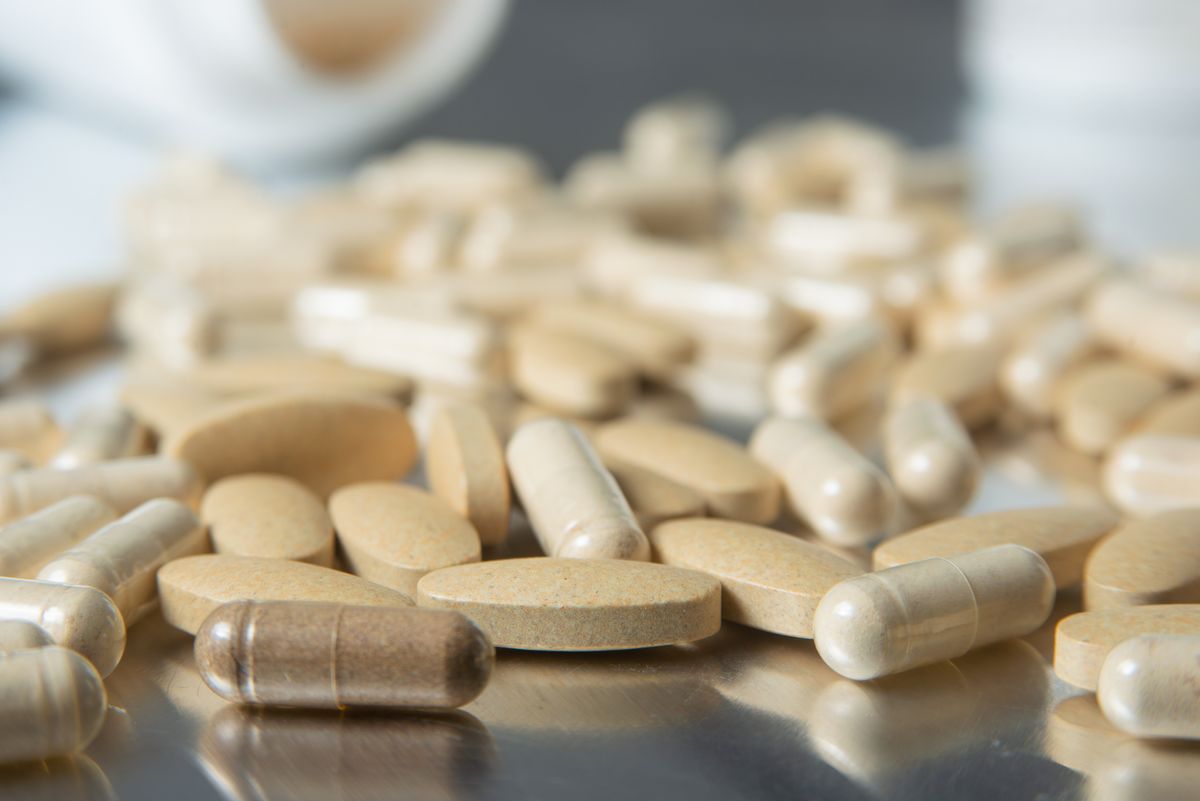Achieving a longer life is a growing possibility for the average American compared to a century ago, as the average lifespan has increased to approximately 76 years, nearly 20 years more than a century back. Nevertheless, while life expectancy has risen, it's not guaranteed that everyone will live to see their 70s, 80s, 90s, and beyond. Apart from genetic factors, various environmental influences can impact longevity, emphasizing the importance of beneficial lifestyle habits and incorporating top-notch supplements for an extended life.
To increase your chances of living a long life, adopting certain habits is key. Engaging in regular physical activity, avoiding tobacco, maintaining mental agility, and consuming a healthy, diverse diet are among the factors that may contribute to thriving in your golden years. Once these practices become a part of your routine, introducing specific supplements into your regimen may provide added benefits in promoting a longer life. While supplements won't guarantee triple-digit lifespans, incorporating them, with approval from your doctor, is unlikely to hinder your quest for a lengthier life. We consulted several dietitians to identify the seven recommended supplements for those aspiring to enhance their longevity. Continue reading to discover more.
1) Astaxanthin:

Astaxanthin is a naturally occurring carotenoid pigment found in certain seafood, particularly in the flesh of pink-colored fish like salmon and crustaceans like lobster, crab, and shrimp. It is what gives these species their distinct pink hue. This powerful antioxidant is known to neutralize free radicals, which are unstable molecules that can cause cellular damage and contribute to aging and various diseases.
Research suggests that astaxanthin may offer several health benefits. Studies indicate that it supports skin health by reducing oxidative stress and inflammation, potentially improving skin elasticity and hydration. It has also been linked to muscle health and endurance, making it popular among athletes and individuals seeking to enhance physical performance. Additionally, astaxanthin's role in promoting eye health is being studied, with evidence showing potential benefits for reducing eye fatigue and protecting against age-related macular degeneration (AMD).
Astaxanthin is not commonly found in standard diets, as most people do not consume enough pink-hued seafood to meet the recommended intake for reaping its benefits. In such cases, taking astaxanthin supplements may be a practical option to enhance its presence in the body and support healthy aging.
Dosage: Studies suggest a range of 2 to 12 milligrams per day to be beneficial, with 3.6 milligrams per day being found effective in certain studies.
Top Pick: NOW Foods offers astaxanthin supplements in various dosages (4, 10, and 12 milligrams). NOW products are reputable for being third-party tested and verified, ensuring quality and accuracy in their formulations.
2) Creatine Monohydrate:
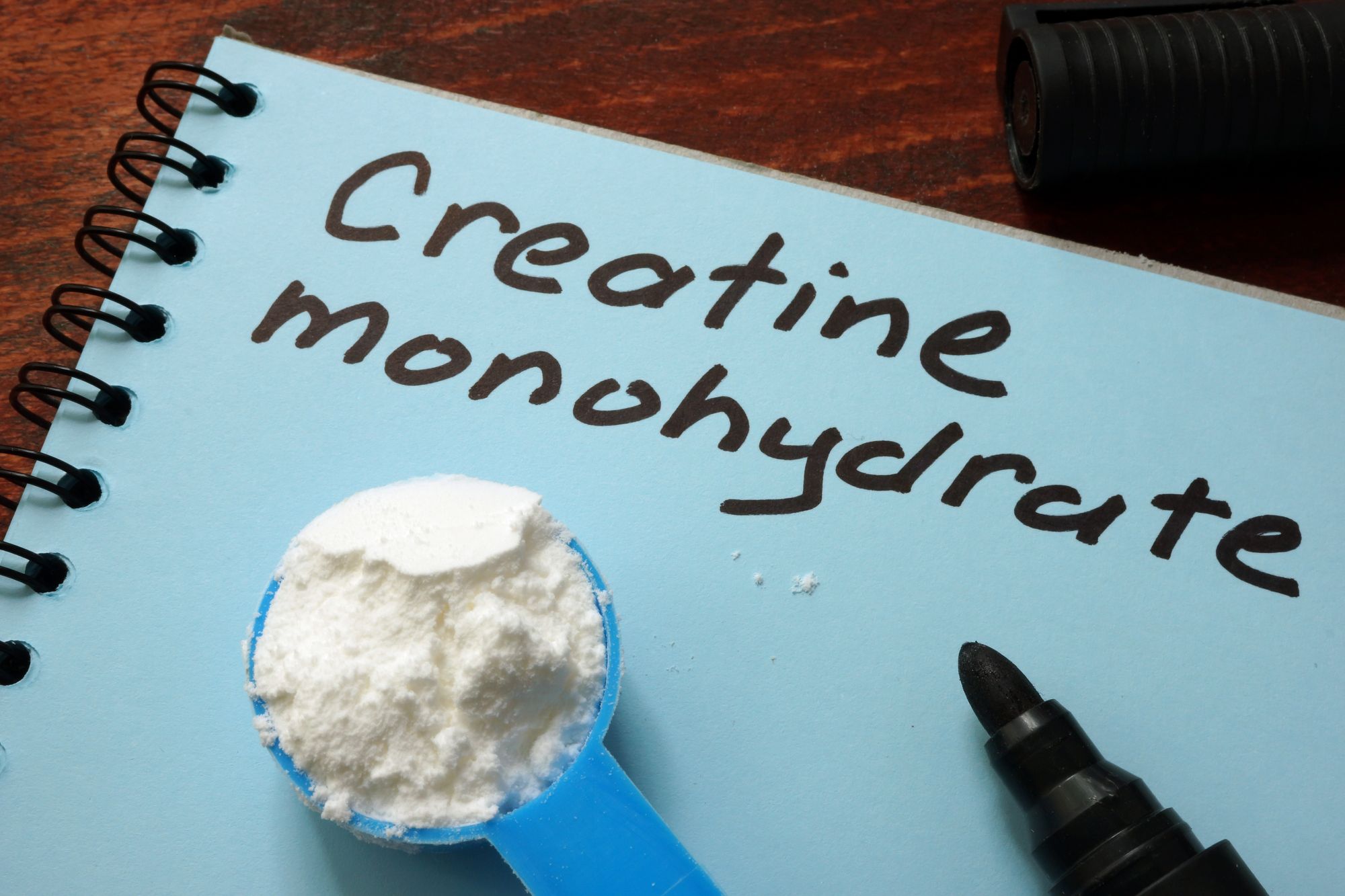
Creatine monohydrate is a naturally occurring compound found in small amounts in certain foods like red meat and fish. It is a popular supplement among athletes and bodybuilders due to its well-established role in promoting muscular strength and performance. When taken in combination with resistance training, creatine is known to enhance muscle mass, improve exercise performance, and increase strength.
However, recent research has expanded the potential benefits of creatine beyond muscle gain. Studies indicate that creatine may also have positive effects on cognitive function, making it of interest for older adults at risk of cognitive impairment. A meta-analysis found that creatine supplementation may be associated with improvements in short-term memory and reasoning in aging individuals.
Moreover, creatine supplementation, when combined with resistance training, has shown potential in reducing the risk of sarcopenia, which is the age-related loss of muscle mass and function. By preserving muscle mass and strength, older individuals can maintain physical capabilities as they age, leading to improved overall quality of life.
Dosage: Standard doses usually involve a loading phase of 20 grams per day for 5-7 days, followed by a maintenance phase of 3-5 grams per day. However, individual needs may vary, and it is advisable to consult with a healthcare professional before starting creatine supplementation.
Top Picks: NOW Sports Creatine Monohydrate Powder and Klean Athlete's Klean Creatine are recommended choices. They undergo third-party testing for substances banned by sports governing bodies, ensuring their purity and safety.
3) EPA/DHA Omega-3 Fatty Acids:
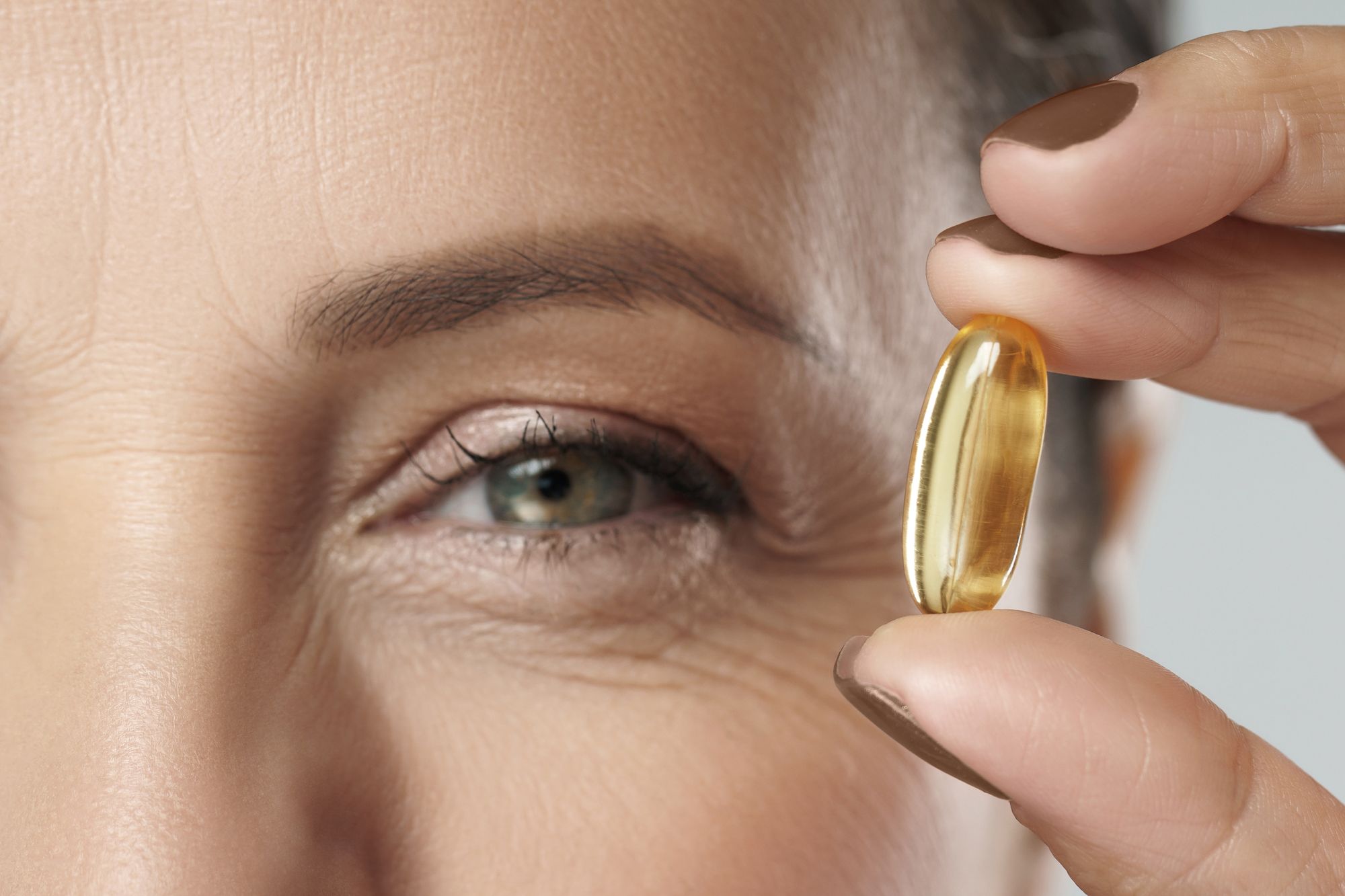
EPA (eicosapentaenoic acid) and DHA (docosahexaenoic acid) are essential omega-3 fatty acids primarily found in fatty fish and shellfish. These fatty acids play critical roles in maintaining various aspects of health, including cardiovascular health, brain function, and inflammation regulation.
Omega-3 fatty acids are well-known for their ability to support heart health. They can help maintain healthy blood pressure and triglyceride levels, reducing the risk of cardiovascular disease. In addition, higher intakes of EPA and DHA have been associated with a decreased risk of heart attacks and all-cause mortality.
Beyond cardiovascular benefits, omega-3 fatty acids have been studied for their potential impact on brain health. Adequate levels of DHA are crucial for brain development and function, and they may help protect against cognitive decline and neurodegenerative diseases.
Unfortunately, many individuals do not consume enough fatty fish to meet the recommended intake of EPA and DHA. In such cases, supplementing with high-quality fish oil capsules or other omega-3 supplements can help bridge the gap and support healthy aging.
Dosage: The American Heart Association recommends 1 gram of EPA and DHA per day for individuals with heart disease. However, individual needs may vary, and it's essential to consult with a healthcare provider to determine the appropriate dosage based on individual health status and goals.
Top Pick: When choosing an EPA/DHA supplement, it is crucial to review the label to ensure the highest proportion of omega-3 fats comes from EPA and DHA. While there are many excellent brands available, it is essential to opt for reputable products to ensure purity and potency.
4) Nicotinamide Riboside (NR):
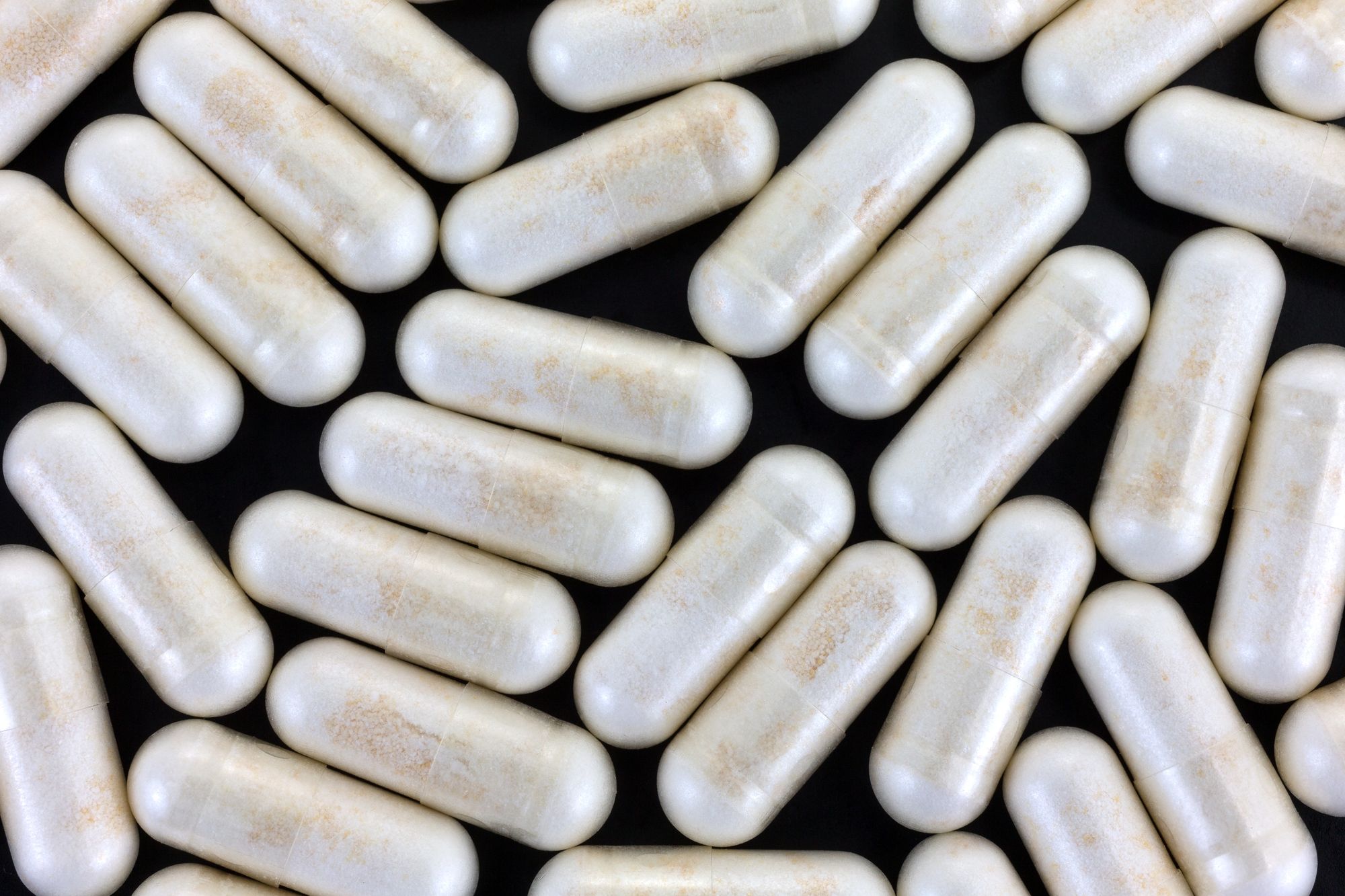
Nicotinamide Riboside (NR) is a unique form of vitamin B3 and a precursor to nicotinamide adenine dinucleotide (NAD+), a coenzyme involved in various cellular processes. NAD+ plays a crucial role in energy production, DNA repair, and cellular defense.
As we age, NAD+ levels in the body tend to decline, leading to reduced cellular energy production and potential impairments in cognitive function. Low NAD+ levels have been associated with several age-related diseases, and researchers are exploring the potential of NR supplementation to address this decline and support healthy aging.
NR supplements are gaining attention for their potential to maintain healthy mitochondrial function, essential for brain health and overall energy production. While more research is needed to fully understand the long-term effects of NR supplementation on human health and longevity, early evidence suggests that it may be a promising compound for preventing and treating age-related diseases.
Dosage: As this area of research is still relatively new, the optimal dosage of NR supplementation for promoting longevity is not yet established. It is essential to follow the recommended dosages provided by reputable supplement brands or consult with a healthcare professional for personalized guidance.
Top Pick: TruNiagen supplements provide the patented Niagen® form of nicotinamide riboside, which is widely used in ongoing or completed clinical trials.
5) Collagen:
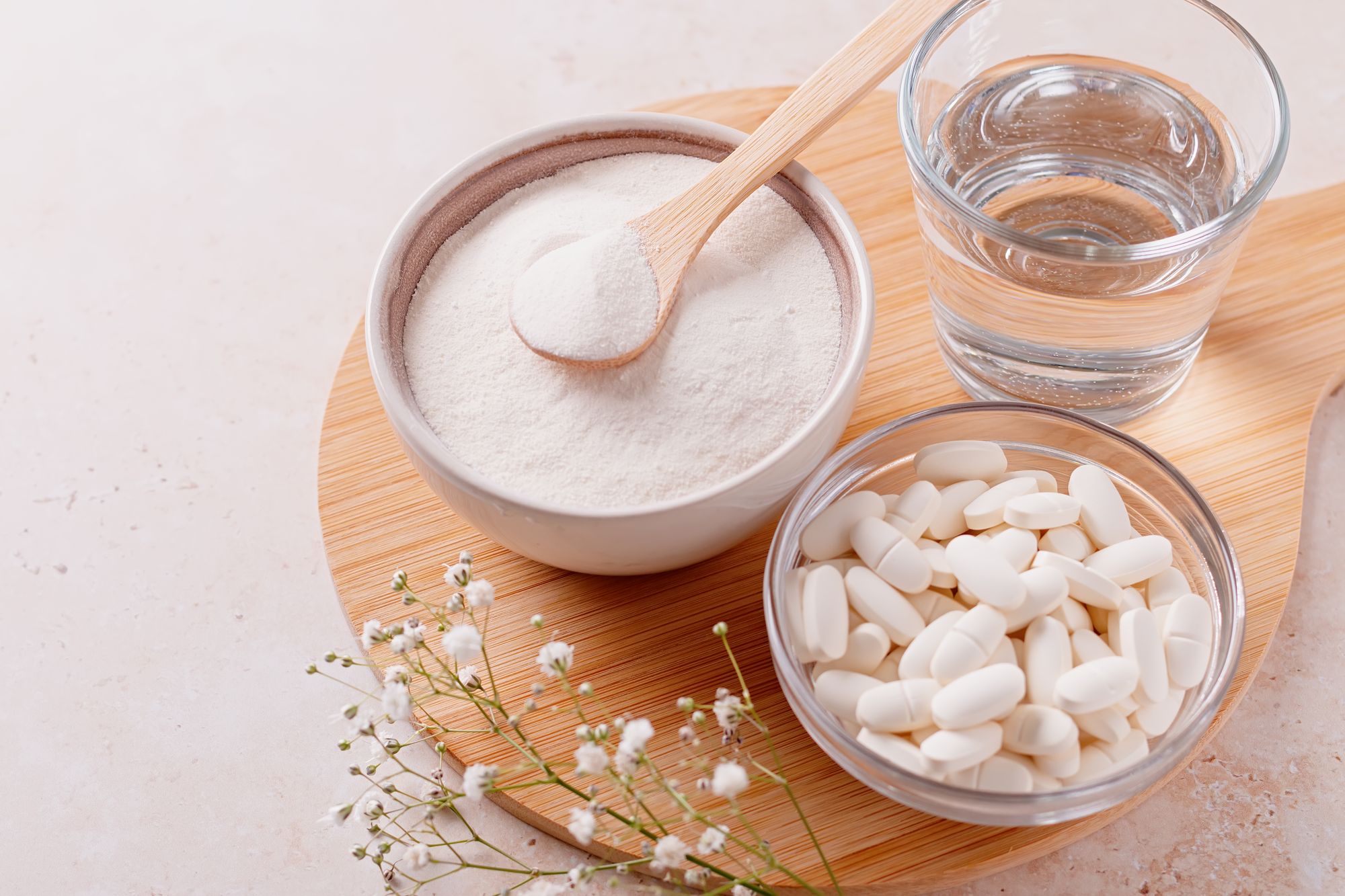
Collagen is the most abundant protein in the body, responsible for providing structural support to various tissues, including the skin, bones, and joints. It plays a crucial role in maintaining skin elasticity, joint flexibility, and overall mobility.
As we age, collagen production naturally declines, which can lead to the development of wrinkles, joint pain, and decreased mobility. Collagen supplements, often derived from animal sources like fish or bovine, have gained popularity as a potential solution to counteract these age-related effects.
Several studies have shown promising results regarding collagen supplementation's benefits on skin health. It can improve skin hydration, elasticity, and reduce the appearance of wrinkles. Additionally, collagen supplements may help alleviate joint pain and stiffness, improving joint function and mobility.
Collagen supplementation is considered safe and may offer positive outcomes for those seeking to promote healthy aging, particularly in maintaining skin and joint health.
Dosage: There is no specific recommended daily intake for collagen. Typically, doses range from 2.5 to 10 grams per day, depending on the product and individual needs.
Top Pick: Life Extension Collagen Peptides for Skin & Joints is a popular choice for its easy mixability and digestibility. It provides a blend of different types of collagen to support both skin and joint health.
6) Vitamin D:

Often referred to as the "sunshine vitamin," vitamin D is a crucial nutrient for overall health and well-being. It is synthesized in the skin in response to sunlight exposure and can also be obtained from certain foods and supplements.
Vitamin D plays a vital role in various bodily functions, including calcium absorption, bone health, immune system function, and cellular regulation. Deficiency in vitamin D has been associated with several age-related diseases, such as cardiovascular disease, cancer, and neurodegenerative disorders.
Research suggests that maintaining adequate vitamin D levels may reduce the risk of these conditions and potentially contribute to longevity. Vitamin D deficiency is prevalent, affecting approximately 42% of the U.S. population. Addressing this deficiency through supplementation may help improve overall health and well-being.
Vitamin D supplements are available in various forms, including vitamin D2 and vitamin D3. Vitamin D3, also known as cholecalciferol, is the more potent and biologically active form, making it the preferred choice for supplementation.
Dosage: The recommended daily intake of vitamin D varies based on age, sex, and individual health conditions. For adults, the recommended intake ranges from 600 to 800 IU (International Units) per day. However, higher doses may be necessary for those with deficiency or specific health conditions, as determined by a healthcare provider.
Top Pick: Thorne Vitamin D is a convenient option for supporting healthy vitamin D levels. It is essential to choose high-quality supplements from reputable brands to ensure potency and efficacy.
7) L-Ergothioneine:

L-Ergothioneine is a naturally occurring antioxidant amino acid found in various dietary sources, with mushrooms being one of the richest sources. It has gained attention in the scientific community due to its potential benefits in preventing or mitigating chronic diseases of aging.
The compound's role as an antioxidant is believed to contribute to its health-promoting properties. Antioxidants neutralize free radicals, reducing oxidative stress and cellular damage that can contribute to aging and disease development.
Some experts have even labeled L-Ergothioneine as a "longevity vitamin" due to its potential association with greater longevity and a reduced risk of cardiovascular disease and early mortality.
While research on L-Ergothioneine is still in its early stages, preliminary evidence shows promising outcomes regarding its potential impact on health and aging. Further studies are needed to fully understand its mechanisms of action and long-term effects.
Dosage: As research on L-Ergothioneine is still emerging, there is no established recommended daily dosage. As with any supplement, it is advisable to follow the dosage guidelines provided by reputable brands or consult with a healthcare professional for personalized advice.

